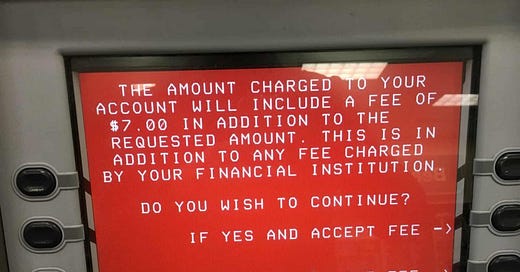Senator Mike Lee has introduced a bill in the Senate further amending the Supplemental Nutrition Assistance Program (SNAP), commonly called food stamps, to redefine what foods can and can’t be purchased with SNAP benefits. Under this bill, people can’t use food stamps for “soft drinks, candy, ice cream, or prepared desserts, such as cakes, pies, cookies, or similar products.” The idea is that food purchased with public assistance should “contain nutrients lacking in the diets of people in the United States” and “promote the health of the population served by SNAP.” People who support this idea point out that when government gives poor people money with no strings attached, recipients tend to spend it not for their own betterment but irresponsibly.
I’m not a policy guy, but I think that if this is a good policy, it should be applied neutrally and universally across all classes of people on public assistance. If Senator Lee were thinking consistently, he’d want the money I gain from the mortgage-interest tax deduction, for instance, to be spent on something more productive than whatever I spend it on—I don't even know—because that's how irresponsible I am in managing a government handout that I get because I’m a member of a designated class whose benefit is seen as improving society as a whole. Maybe I should have to spend that money on improving my house’s energy efficiency, since I get the money thanks to owning the house. I prefer to ignore the needs of the planet and squander, say, both the money and jet fuel on a European vacation because people tend to be irresponsible when given benefits by the government without restrictions, or so I'm told.
I’m also handed money by the government every time I take cash out of an ATM, but for some reason nobody tells me what I can and can’t do with that money, which comes to me because I’m a member of a class whose assistance, it’s been decided, is beneficial to society. As a result of regulatory policy for the banking industry, ATM fees are flat, not progressive, so I pay $3.00, say, for taking $400 out of an ATM. Somebody who can afford to take out only $20 at time also pays $3.00 per transaction, or $60 to take out $400. For every $400 I take out, the government is giving me, as a member of the class that can afford to take out that much, $57.
Maybe that money should come with restrictions to keep me from squandering it on unworthy pursuits. As should money the government gives me for being able to afford to add enough value to a subway farecard to get a discount instead of having to pay full fare, as people do who can afford only to pay for a ride or two at a time.
Another way I get money from the government: tax revenue drawn from people addicted to gambling, cigarettes, and weed, and therefore not drawn from me. If government assistance should be spent only on useful and healthy things, and since I get that benefit because I’m not addicted to gambling, cigarettes, and weed, maybe I should be required to spend it on counseling to help me understand I’m not morally superior to people who are assigned the task of providing public revenue so I don't have to.
There’s a glitch in this plan to impartially apply rules for how to spend public assistance. I’ve never had to apply for mine, so no practical way exists to enforce any restrictions on me. Food-stamp recipients, already operating in a restricted environment, are not being given a fungible medium of exchange, as I am, which can be spent on anything I happen to want; they’re registered in a program where they have to spend the benefit on something as basic as food or see their children go hungry, which makes it easy to further limit that spending to what the government decides, at any given time, is best for them.
Luckily for me, there’s nothing to be done about that glitch. The basic precept of public assistance is to make one class of people designated for benefits sign forms and stand in line and receive necessities, so they’ll know they're on the dole, and let the other class do nothing and receive money, so they won’t.



